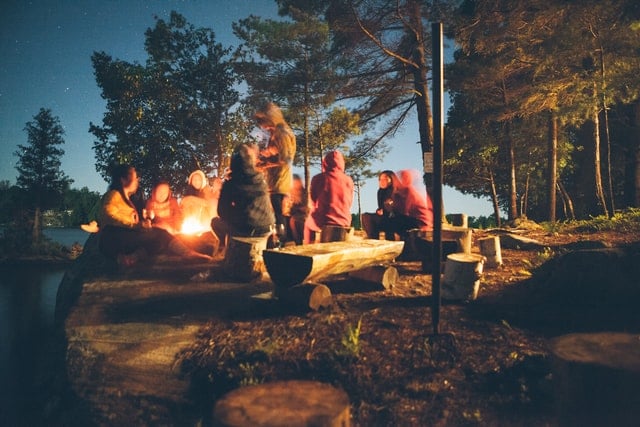
“It’s almost like there wasn’t really a language around peer groups, there wasn’t a narrative for it, they didn’t know really what it was or how to access it.”
Circles considers Leo Bottary one of our “comrades in arms.” His 2016 book, co-authored with the then CEO of Vistage, offers best practices for harnessing “The Power of Peers.” He declared 2017 “The Year of the Peer” and has been travelling the Globe and recording interviews with leaders who tell their stories about the peer teams that helped them succeed.
Recently, Leo interviewed Circles CEO Dan Hoffman via video conference for an episode of his Year of the Peer podcast. Their conversation went into depth on their shared mission, how to make people present in team meetings, being deliberate about peer support and how they both want to spread the word on peer groups and make them accessible all over the world.
Click here to have a listen to the podcast or watch the video over at leobottary.com.
Below are some of the main points.
How Dan was drawn to the idea of peer groups
“We learn better in circles than we do in rows. When I reflected on my own learning journey I thought about all of the coaches and the consultants and the courses that I had subscribed to and got help from as I learned to be a CEO. My peer group though, and I very fortunately had a YPO peer group for most of that time, was one of the most impactful and most important.”
“The thing that I loved more than anything in .. building a business was the learning journey, both my own, and also creating a culture of learning at work. I set off to start studying learning, working on learning and development, as well as chasing that feeling, and that led to the project at Circles.”
How Leo makes the most out of everyone’s experience
“What I’ve found, and I’ve said many times, when I started not only being a student but also an instructor in graduate school, is that we’ve got all of these these very experienced people in the room. It was really different from the learning experience growing up where you have somebody at the front of the class and they’re just talking at the students … here you’ve got all this intellectual capital in the room and in my view as an instructor, if I’m doing my job well, I’m going try to create the environment where they learn the most from one another, second from the material, and whatever I can add, great.”
Dan’s mission for Circles
“Our mission is to make it easy for people to connect deeply, learn and grow together.”
“Part of my mission has [also] been to take that feeling, that fire that does exist, for about a hundred thousand CEO’s across Vistage, EO, YPO and some of the other groups, and ask the question, why doesn’t everyone in the world have this? Why can’t this circle idea be a structure that really helps people of all walks of life learn together and move forward in their lives?”
How process drives presence
“Everyone’s face is in a circle, and you’re in the middle when the focus is on you. There’s nowhere to hide. You know you’re gonna get called on and it’s producing a very different video meeting experience from what people are used to. There is no multitasking and there’s a focus on being present.”
“Process and the right mix of ingredients for the right case does produce this experience of a deep and safe space and opening up that’s very powerful, and it produces it fairly consistently.”
Why Leo wrote The Power of Peers
“One of the reasons for writing the power of peers, which was published back in 2016, was this idea of how is something that works so unbelievably well for so many people used by so few, when you really look at the broad landscape of it, whether it’s CEOs or business leaders at all different levels.”
“We conducted a number of focus groups where we asked people what the ways they might think about learning. They’d name fifty things -books, executive development programs, go to business school- before they ever got to ‘oh, join a peer group!’ It’s almost like there wasn’t really a language around it, there wasn’t a narrative for it, they didn’t know really what it was or how to access it. It’s so not top of mind.”
Simply by turning up, Dan and Leo are a testament to the power of peer groups. They bonded over their shared passion for peer groups, and here they are, keeping the community alive and helping each other as peers. Thankfully, they did more than just turn up and are spreading the word on how learning with a community trumps going it alone in business and in life.
Leo’s Year of the Peer Podcast and Circles share a common goal; converting non-believers to the power of peers. As Leo remarked, “my hope is that with more conversations like the one we’re having now, people will seek out how to have more circles and how to make sure that the circle they have is the right one for them for helping them in their lives and allowing them to help others.


